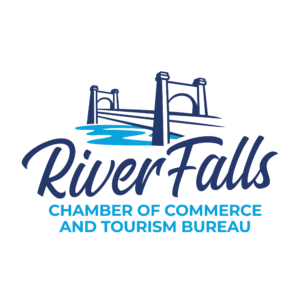Public relations (PR) often feels like an exclusive club reserved for big corporations with massive budgets, celebrity endorsements, and an extensive network of connections. For small business owners, hiring a dedicated PR firm may seem like a luxury far out of reach. Who has the time to master PR strategies while juggling the countless demands of running a business? And doesn’t it take years (or deep pockets) to cultivate meaningful media relationships?
Not necessarily.
You don’t need a prestigious PR background or a hefty budget to create buzz around your business. With some creativity and the right strategies, you can generate significant media attention and grow your brand. Here’s how.
Laying the Foundation: Mastering PR Fundamentals
Before diving into tactics, you need to get your basics right. Otherwise, you risk wasting time and energy. Here are the key building blocks for effective PR:
Define Your Story
What sets your business apart? What problem do you solve better (or differently) than anyone else? Your story must be authentic and compelling, resonating with your target audience. (Pro tip: “Good customer service” isn’t unique enough.) Identify your key messages and ensure they align with your business’s mission and values.
Know Your Audience
Who are you trying to reach? What platforms and media do they consume? For instance, if your target audience is women under 25, they’re unlikely to be reading the print edition of The Wall Street Journal. Research where your audience spends their time and focus your efforts there.
Set Realistic Goals
What do you want to achieve through PR? Increased brand awareness? More website traffic? Generating leads? Clear objectives will help you measure your success and refine your approach.
Generating Buzz on a Budget
Now that your foundation is set, let’s explore affordable PR strategies that deliver results without breaking the bank.
1. Leverage Social Media
Social media platforms are a powerful (and free) way to connect with your audience. Share engaging content, interact with followers, and participate in industry conversations. Building relationships is a long game, but it’s worth the effort. Don’t just engage with your customers; connect with influencers, media professionals, and industry leaders.
2. Write Newsworthy Press Releases
A well-crafted press release can open doors to media coverage. Highlight events, product launches, or milestones that are newsworthy. Don’t underestimate the power of feel-good stories—community-focused pieces often resonate with local media.
3. Build Relationships with Local Media
Local newspapers, magazines, radio stations, and blogs are always looking for interesting stories. Reach out to journalists and editors with tailored pitches. Offer exclusive stories or expert commentary on your industry.
4. Use Online PR Platforms
Tools like Help a Reporter Out (HARO) connect journalists with expert sources. This time of year, many outlets feature stories about local businesses and the “shop small” movement. Being featured in these stories can boost your visibility significantly.
5. Become a Guest Blogger
Pitch well-written, insightful articles to blogs and websites that your target audience reads. For example, your local Chamber of Commerce might need content and could provide a platform for your expertise.
6. Host Events and Workshops
Community events or educational workshops can position you as an industry leader while attracting media attention. Notify your local Chamber of Commerce to help spread the word.
7. Collaborate with Other Businesses
Partnering with complementary businesses can help you tap into new audiences. Joint promotions or events can double your reach and enhance your PR efforts.
8. Encourage Referrals
Word-of-mouth remains a powerful PR tool. Incentivize happy customers to share their experiences through referral programs or reviews.
Making Media Relationships Work
Establishing connections with media professionals doesn’t have to be intimidating. Here’s how to make it easier:
-
Start Local: Local media outlets are often more accessible and interested in covering small businesses.
-
Do Your Homework: Identify journalists who cover your industry. Follow them on social media and read their work to understand their interests.
-
Tailor Your Pitch: Make your pitch relevant and personalized. Highlight why your story is valuable to their audience.
-
Follow Up, Respectfully: Persistence is key, but avoid overwhelming journalists with repeated messages. Be mindful of their deadlines.
-
Focus on Building Genuine Relationships: Engage with journalists authentically. Be a resource rather than just another pitch in their inbox.
The Bottom Line
Effective PR isn’t about how much you spend; it’s about how well you tell your story and connect with the right people. By understanding your audience, crafting a compelling narrative, and leveraging the tools at your disposal, you can build meaningful media relationships and elevate your business to new heights—without needing a massive budget or a degree in public relations.
Christina Metcalf is a writer and women’s speaker who believes in the power of story. She works with small businesses, chambers of commerce, and business professionals who want to make an impression and grow a loyal customer/member base. She is the author of The Glinda Principle, rediscovering the magic within.
River Falls Chamber of Commerce and Tourism Bureau
-
Rillie Zwiefelhofer Marketing and Communications Specialist
- December 16, 2024
- (715) 425-2533
- Send Email

.png)
